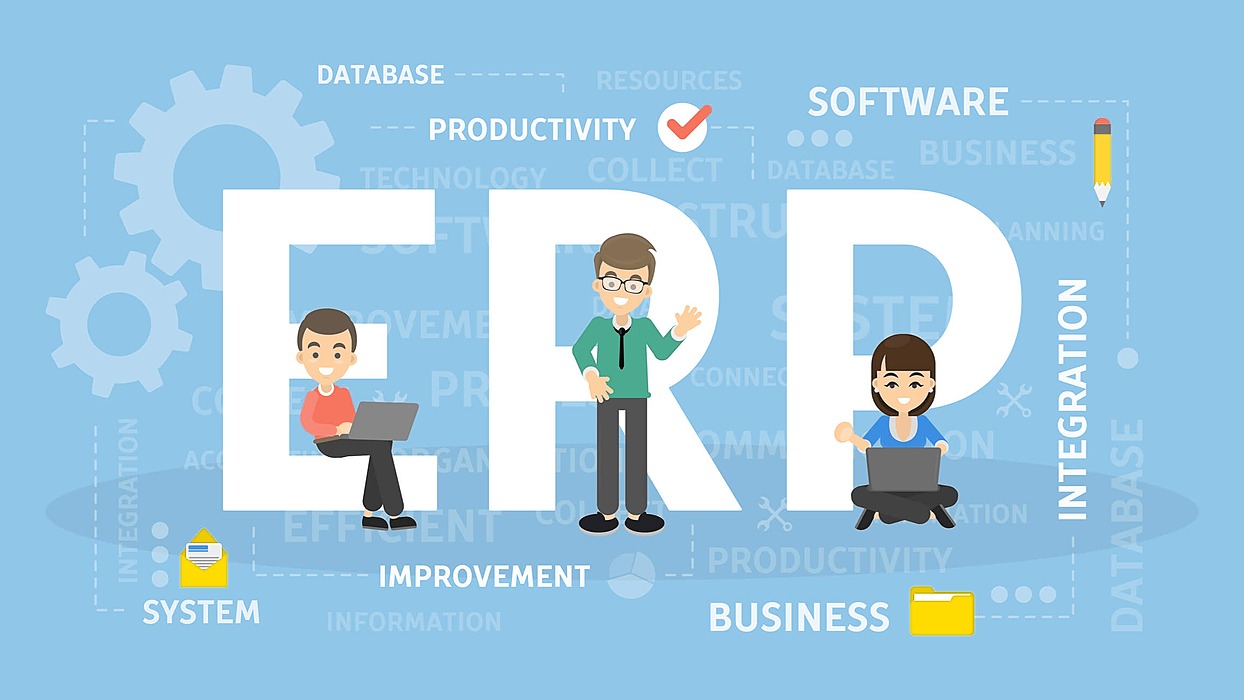ERP or Enterprise Resource Planning alludes to programming and software used to design and deal with all the services, manufacturing, core-supply chain, and finances as well as different procedures of an association.
ERP programming helps to computerize and streamline individual activities within a business or association, such as venture the executives, procurement, accounting, management of client relationships, management of risk(s), supply chain operation, compliance, and project management.
Applications of ERP software
The applications of ERP are not just limited to one industry or two. It is versatile and used in the following industries – food and beverage, automotive, industrial machinery, electronics, healthcare, retail/clothing, technology, farming & agriculture, manufacturing, and customer goods.
Individual ERP applications may include programming as a guide. An example that we can take is SaaS, during which a total set-up of ERP applications makes up an Enterprise Resource Planning system that helps to adequately impart plus unite the business procedures for the sake of empowering a progression of information between the applications. This is usually done through the use of common databases on-premise/on-site and/or in the cloud.
Reasons to implement ERP Solutions for Business:
- It saves money
Errors on the part of a business when it comes to the financial front almost always ends in a loss. A business is always required to dodge these mistakes to keep a strong name in the industry. ERP solutions reduce the operation and administrative costs for business organizations. They also help to make use of the same money in areas that require it.
- Better reporting capability
ERP programming helps to make revealing reports simpler and more adaptable, fitting to address the entirety of your requirements. With improvised reporting, your organization can react to complex information demands all the more without any problems. In turn, this will improve profitability while at the same time, the process completes quickly. Implementation of ERP will assist with finishing off undertakings without enormous holdup times in the middle. Clients can likewise run reports of their own without depending on IT for assistance. This will spare the time of the clients which they can use for several activities.
- Increases the level of productivity
Heavy tasks on the work front end up occupying a lot of business time. This leads to a delay in production, giving a heavy blow to the business altogether. This even includes the customer-service experience. When a business chooses ERP’s streamlining capabilities, then a lot more time is saved. The business can choose to attend to more important tasks at hand at this time, which will only result in increased productivity. In addition to this, customer needs are also fulfilled, leading to customer satisfaction. These solutions are created, keeping in mind the convenience of business or organizations; therefore, businesses can now take a break from the tedious work at hand and work towards tasks that require more attention.
Downsides to ERP Software
- Implementation and maintenance costs
ERP Software has a lot of good positive sides. However, the costs for implementation are almost four times the initial investment. Additional staff may need to be employed to carry out the tasks successfully. The staff would include ERP consultants, trained software specialists, IT staff, and more. Additionally, you may need to put resources into new equipment for appropriately bolstering your ERP software, for example, the servers and cell phones. What’s more, is that you will have to assign people to look after them.
For more information about ERP solutions, you can head to Big Bang 360.

Leave a Reply